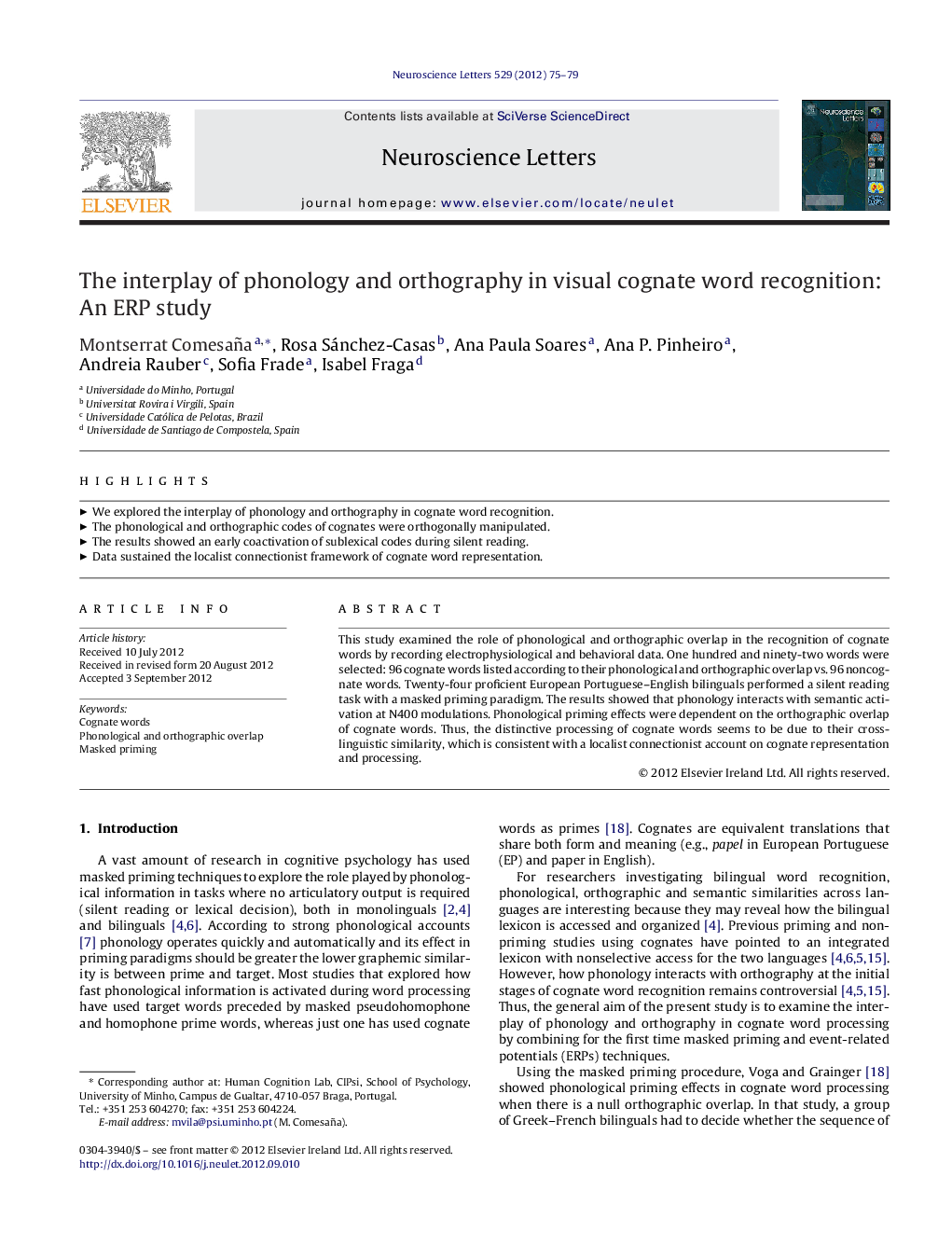| Article ID | Journal | Published Year | Pages | File Type |
|---|---|---|---|---|
| 6283845 | Neuroscience Letters | 2012 | 5 Pages |
This study examined the role of phonological and orthographic overlap in the recognition of cognate words by recording electrophysiological and behavioral data. One hundred and ninety-two words were selected: 96 cognate words listed according to their phonological and orthographic overlap vs. 96 noncognate words. Twenty-four proficient European Portuguese-English bilinguals performed a silent reading task with a masked priming paradigm. The results showed that phonology interacts with semantic activation at N400 modulations. Phonological priming effects were dependent on the orthographic overlap of cognate words. Thus, the distinctive processing of cognate words seems to be due to their cross-linguistic similarity, which is consistent with a localist connectionist account on cognate representation and processing.
⺠We explored the interplay of phonology and orthography in cognate word recognition. ⺠The phonological and orthographic codes of cognates were orthogonally manipulated. ⺠The results showed an early coactivation of sublexical codes during silent reading. ⺠Data sustained the localist connectionist framework of cognate word representation.
